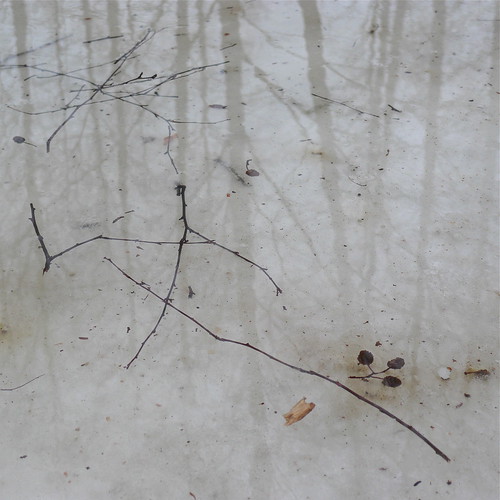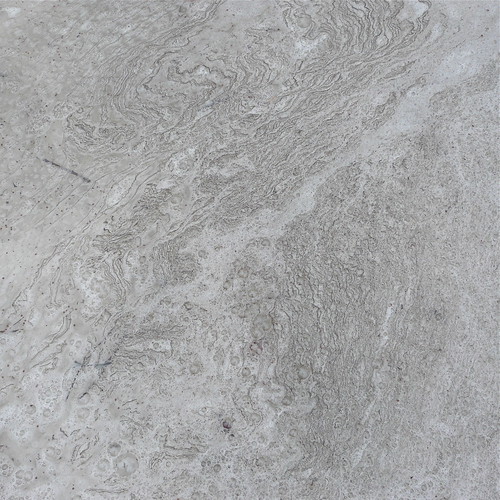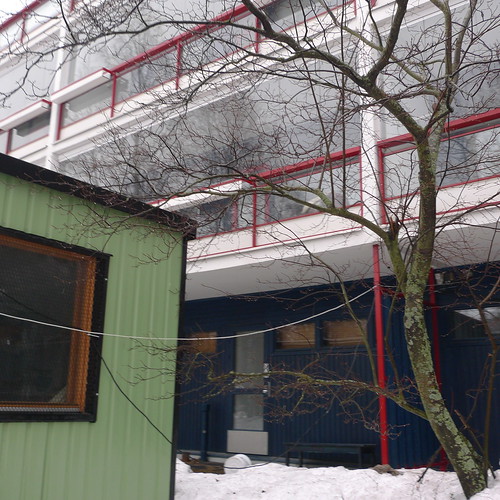Modern cognitive (and brain) research offers some interesting views on how our visual system works, for example how horizontal and vertical lines are recognized, how contrast plays a role, how movement (real or implied) is recognized, and so on. (Edit: Or symmetry.)
You could say that we are on the verge of understanding how we see the world, and it is a fascinating machinery indeed what we have in our head.
Today I thought whether some of the pleasure we get from looking at photographs stems from the way they engage our visual system - perhaps there is a similar kind of effect as when you get physical exercise, but in this case from exercising the brain.
Another thing is that perhaps some day we know in detail how a specific photograph works, and this leads to opporturnities for the computer-generation of photographs with impact. Like a super-photoshop...
Another view on this provided by the French sociologist Roland Barthes in the book Camera Lucida (originally La Chambre Claire, also translated into Finnish as Valoisa huone).
I haven't yet read the book, but I made a reservation at the local library when I saw Markus Spring writing about it: "Also his emphasis on things not plainly visible in an image, yet connected through the knowledge of the observer, is an interesting aspect – and hard to take into consideration when creating an image."
This seems to be an interesting approach to think about, but I have to see whether I can understand what the book is about. Some socioligists are just too obscure for me to bother reading.
Beer Flavored Beer
17 hours ago











4 comments:
First of all thanks for this wonderful collection of late winter images. I've looked at some on flickr, where size and dark background give an even better environment.
Re. the visual processing, there's maybe another divide coming: those who are content with the machinery's self-employed creativity, and those who aren't. When I recollect the affinity for HDR and now 3D, probably the first group will be the majority. I hope I will be wrong, but for me it looks much like fast food: easy to identify, not so many subtleties, but tingling certain trigger points aka. coolness.
I still prefer the good old brain exercise, in creating as in looking at photographs. Maybe it's a little like slow food.
And re. Barthes' theses, we need genuine personal experiences to dive into images in the way he describes. Probably the high speed especially the younger generation expects from life will make this difficult.
@Markus: Special effects for everyday - I guess that is just what is coming. But what about "reality" then?
Juha, I am not sure how many people care about real reality. It might well be that people like us are a minority, or at least will be in the future.
Just think of broadcasted "reality" - many people take the surrogate for the real thing, and it certainly is an addiction for some, bringing all the benefits of drugs while being legal.
Reality has the fundamental disadvantage of being inconvenient because of its complexity. In photography we have our own ways of dealing with it and distilling our view, our frame out of it. Consumed reality is simpler, easier to swallow and digest, like fast food. And the special effects sauce is for the images is what glutamate is for unsavoury dishes.
Some time ago I read the book "Social Construction of Reality" by Peter L. Berger and Thomas Luckmann, published in 1966, and it was interesting to realize how different kinds of (cultural) knowledge are generated.
Broadcasted "reality" is a good case in point (or would it be point in case?) - I don't think human brains are really able to differentiate what is first-hand experience and what is manufactured reality.
Post a Comment